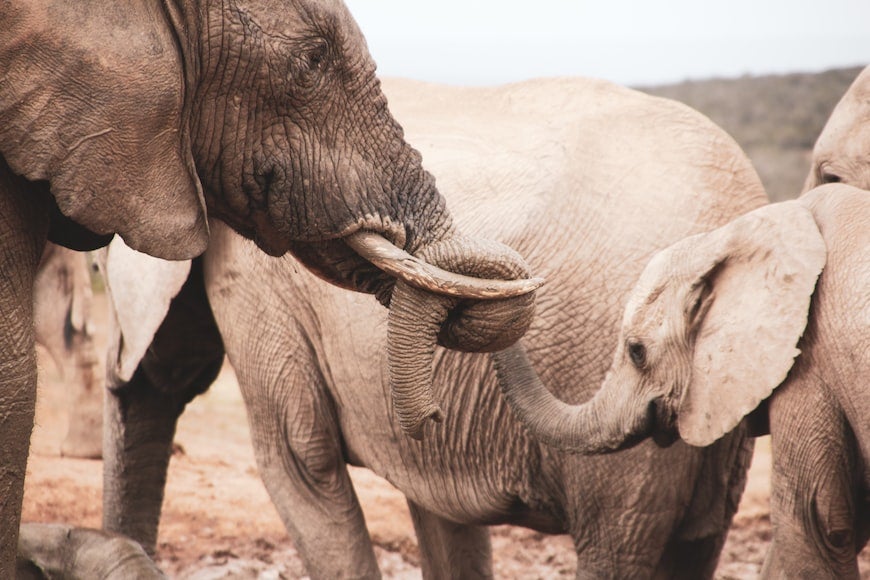Five years without elephant poaching in Mozambique’s Gorongosa National Park
Remarkable turnaround for iconic landscape where poachers wiped out 90% of elephants during the country’s civil war

By Refinaldo Chilengue for Prestigio
No elephant has been killed by poachers in five years in the Gorongosa National Park, located in the central Mozambican province of Sofala.
This information was provided on October 20, 2022 in Maputo by the head of the Department of Conservation in the National Park, Ângelo Levi, during a debate on the theme The Challenges of Conservation of Animal and Forest Life, promoted by Nedbank Mozambique, as part of the commemorations of World Animal Day.
Levi also noted that, for two years, no lion has been caught in poachers’ snares in the iconic tourist destination in Mozambique.
The main factors for the success in the 6,700 sq km conservation area was the good performance of wildlife law enforcement, 95% of whom were recruited locally, and the growing awareness of the communities, especially those in the buffer zone, Ângelo Levi pointed out.
The population of elephants in Gorongosa is currently estimated at 781, which represents a 31% population growth, taking into account that in 1972-1977 there were about 2,500 animals, and in 2000 there were less than 250, as a result of the devastating civil war between government forces and RENAMO guerrillas (1976-1992).
In turn, the population of lions in Gorongosa was, in 1972-1977, estimated at close to 200 specimens, a number that dropped to about 30 when the civil war ended, and it is assumed that there are today close to 150, according to 2020 census results.
Levi said that the growth in the herd of elephants was further boosted by the reintroduction of six new specimens of this largest land mammal in 2008, the year in which the Gorongosa National Park began officially to be managed under the Long-Term Agreement between the Government of Mozambique and the Carr Foundation, a pact that was initially supposed to last 20 years, but was extended to run until 2043.
It should be noted that, unlike other species, the lions of Gorongosa National Park did not benefit from population reinforcement through translocations, being only the result of reproductions of those that survived the civil war.
Based on the 2020 census figures, it is estimated that there are approximately seven thousand species of flora and fauna in the National Park today.
The 2022 census is currently underway, which should bring up more up-to-date data, to be made public in principle in the first quarter of 2023, according to Levi.
Having previously existed as a game reserve, it assumed the status of Gorongosa National Park in 1960, being located on the southern limit of the Great African Rift Valley, in the “heart” of the Central region of Mozambique.
It suffered severely from the effects of the civil war, with the first signs of restoration appearing in 2004 that were accelerated with the effective intervention of the American philanthropist Gregory Carr in 2006, formalised two years later and that the results are now available to all.
One of the long-term goals of the PNG is to extend the protection area to the Indian Ocean, through the Marromeu National Reserve, to the mangroves of the Zambezi River delta, in addition to ensuring that 50% of its employees are women by the year of 2025.
This article is reproduced here as part of the African Conservation Journalism Programme, funded in Angola, Botswana, Mozambique, and Zimbabwe by USAID’s VukaNow: Activity. Implemented by the international conservation organization Space for Giants, it aims to expand the reach of conservation and environmental journalism in Africa, and bring more African voices into the international conservation debate. Written articles from the Mozambican and Angolan cohorts are translated from Portuguese. Broadcast stories remain in the original language.
Read the original story here.

Join our commenting forum
Join thought-provoking conversations, follow other Independent readers and see their replies